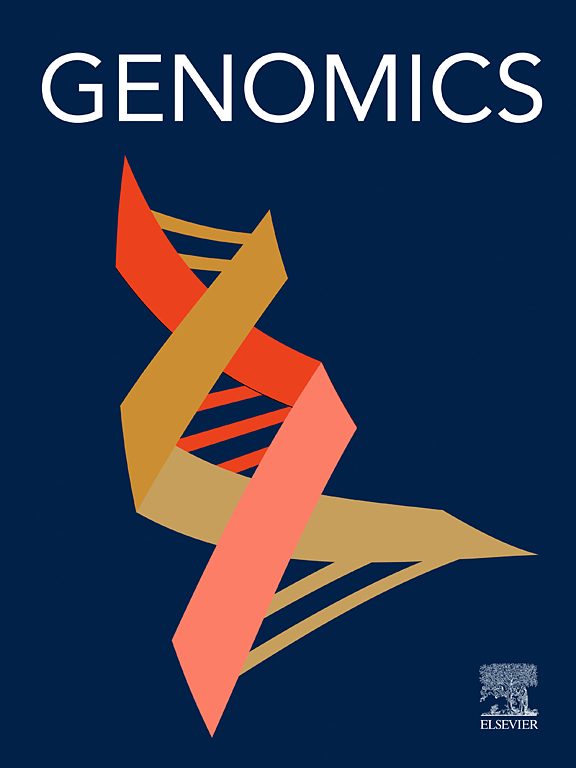中国家族性腺瘤性息肉病家族中APC启动子1B缺失的鉴定和特征
IF 3
2区 生物学
Q2 BIOTECHNOLOGY & APPLIED MICROBIOLOGY
引用次数: 0
摘要
背景:家族性腺瘤性息肉病(FAP)的典型病例表现为大肠腺瘤性息肉病(APC)基因编码序列的变异。没有检测到APC变异的家庭不能从基因检测中获益。方法:采用外显子组测序、全基因组测序对APC变异阴性的FAP家族进行研究。实时定量PCR、单核苷酸多态性分析、sanger测序和类器官药物敏感性分析。结果:在所有受影响的FAP家族成员中,我们发现了APC转录起始位点上游约100 kb的新缺失,覆盖了整个APC 1B启动子。先证者的血液RNA显示一个APC等位基因沉默,与这种缺失有关。这种缺失抑制了APC基因的转录。此外,该家族表现出独特的结肠外表现,其对FAP治疗药物的反应与典型FAP病例相似。尽管如此,传统的抗癌治疗对患者还是有良好的效果。结论:这些发现表明APC外显子变异阴性的FAP患者可能在启动子区域,特别是1B区域存在缺失。他们的临床特征和治疗反应与其他FAP病例不同,强调了针对其不同情况量身定制个性化管理策略的重要性。本文章由计算机程序翻译,如有差异,请以英文原文为准。
Identifying and characterizing a novel APC promoter 1B deletion in a Chinese family with familial adenomatous polyposis
Background
Typical cases of familial adenomatous polyposis (FAP) exhibit variants in the coding sequence of adenomatous polyposis coli (APC) gene coding sequence. Families without detectable APC variants can't benefit from genetic testing.
Methods
We investigated a FAP family with APC variant negativity using exome sequencing, genome sequencing. Quantitative real-time PCR, single nucleotide polymorphism analysis, sanger sequencing, and organoid drug sensitivity assays.
Results
We discovered a novel deletion spanning about 100 kb upstream of the APC transcription start site, covering the entire APC 1B promoter, in all affected members of the FAP family. The proband's blood RNA revealed the silencing of one APC allele, linked to this deletion. This deletion suppressed APC gene transcription. Additionally, this family exhibited unique extracolonic manifestations, and their response to FAP treatment drugs was similar to that of typical FAP cases. Despite this, conventional anticancer treatments led to favorable outcomes for the patients.
Conclusion
These findings indicated that APC exon variant-negative FAP patients may have deletions in the promoter region, particularly the 1B region. Their clinical features and treatment responses differ from other FAP cases, emphasizing the importance of personalized management strategies tailored to their variant profile.
求助全文
通过发布文献求助,成功后即可免费获取论文全文。
去求助
来源期刊

Genomics
生物-生物工程与应用微生物
CiteScore
9.60
自引率
2.30%
发文量
260
审稿时长
60 days
期刊介绍:
Genomics is a forum for describing the development of genome-scale technologies and their application to all areas of biological investigation.
As a journal that has evolved with the field that carries its name, Genomics focuses on the development and application of cutting-edge methods, addressing fundamental questions with potential interest to a wide audience. Our aim is to publish the highest quality research and to provide authors with rapid, fair and accurate review and publication of manuscripts falling within our scope.
 求助内容:
求助内容: 应助结果提醒方式:
应助结果提醒方式:


